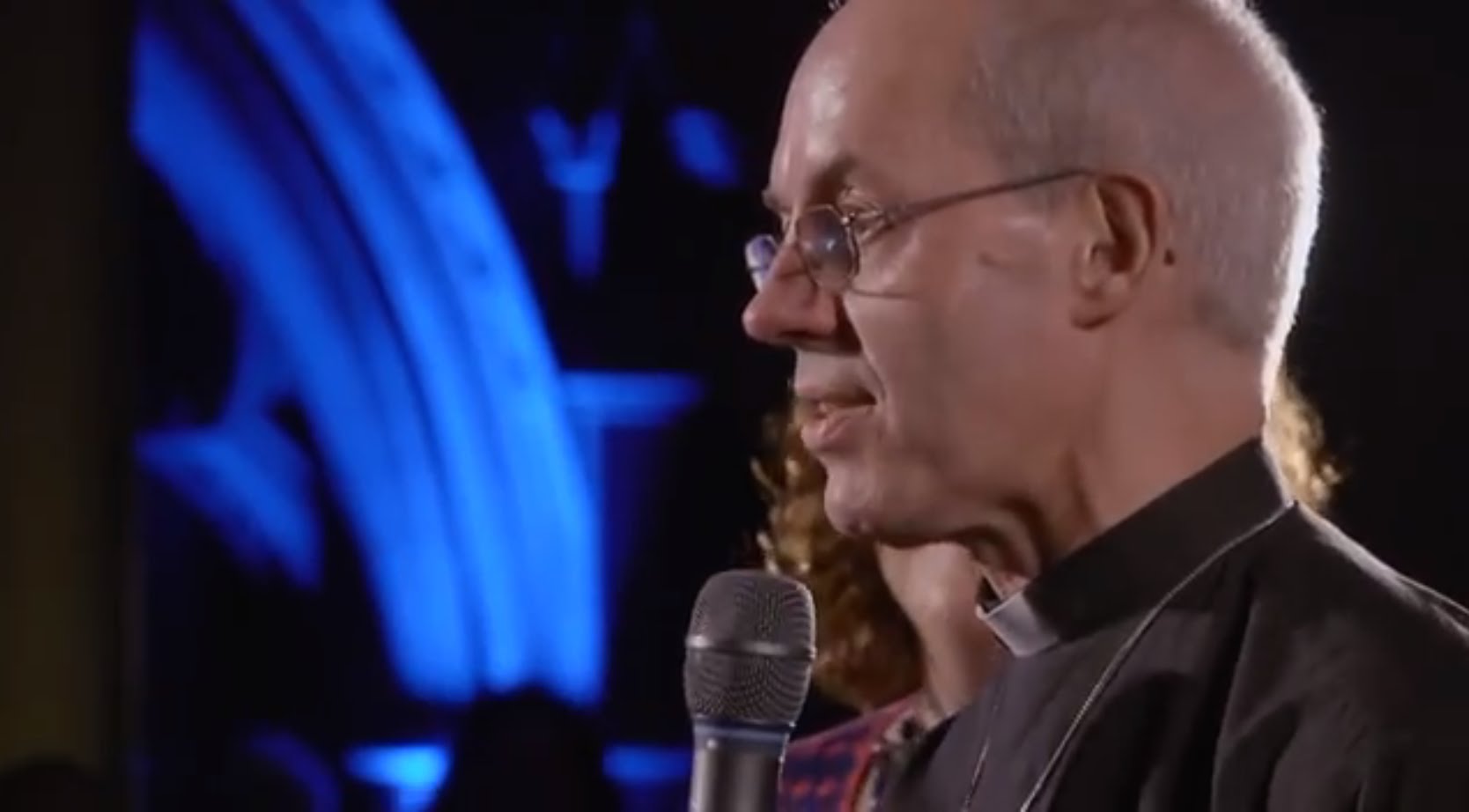The Archbishop of Canterbury, Justin Welby, made media waves when he acknowledged he has doubts. In the interview with Lucy Tegg (video above, start at 12:00 minutes in), he candidly says, “There are moments, sure, where you think ‘Is there a God? Where is God?'”
When asked, “Do you ever doubt?”, he replies, “Yes. I do. In lots of different ways really. It’s a very good question. That means I’ve got to think about what I’m going to say. Yes I do.
There are moments, sure, where you think ‘Is there a God? Where is God?’..I love the Psalms, if you look at Psalm 88, that’s full of doubt… The other day I was praying as I was running and I ended up saying to God: ‘Look, this is all very well but isn’t it about time you did something – if you’re there’ – which is probably not what the archbishop of Canterbury should say.”
I remember the media furor on the publication of some letters of Mother Teresa, Mother Teresa: Come Be My Light. There was huge surprise amongst some at the realisation that she spent nearly the last fifty years of her life without any sensation of God’s presence. To the point of some calling her life hypocritical.
The opposite of faith is not doubt. It is certainty that is the opposite of faith. Fundamentalism, and its certainty, is the problem, whether that is religious fundamentalism/certainty, or the certainty of the fundamentalist antitheist.
Doubt is not only the foundational tool of the scientific method, it is the growing edge of our faith life. Doubt is integral to the too-neglected apophatic approach to faith.
A spirituality that focuses on feelings, or one that pretends that you can pull yourself up to faith by the bootstraps of your own reason, will struggle to last the distance of a full, open, intelligent life.
If you are an atheist, or an agnostic (in the sense that “we cannot know”), let us be honest with each other (over a beer if needs be) that you doubt your atheism, and you your agnosticism, just as we theists have our doubts… There is nothing intrinsically different between humans who commit to religion and those who do not. There is no God Gene. There is only a difference in where we commit.
Recently a thirteen year old asked me, cautiously, if I ever had doubts? “Doubts about what?” I said. “About God, and everything.” “Of course I do”, I laughed. His face lit up. Now we could have a conversation…




Lovely, Bosco. Archbishop Welby could have done no better than to cite the psalms, where so often the conversation is between the doubter and the God he thinks has abandoned him.
The Australian theologian Anthony Kelly neatly observed that “theological originality has its origin in questions”. But Peter Abelard said as much and more over eight hundred years earlier:
“Through doubting we come to questioning and through questions we perceive the truth. In consequence of this, Truth herself says (Matt. 7:7), ‘Ask and it shall be given you; knock and it shall be opened to you.’ Teaching us this spiritual lesson with Himself as an example, He let Himself be found, at about twelve years of age, sitting and questioning in the midst of the teachers, showing Himself to us in the model of a student with His questioning, before that of a schoolmaster in his pronouncements, although His knowledge of God was full and complete. And when some passages of Scripture are brought before us, the more the authority of the Scripture itself is commended, the more fully they excite the reader and tempt him to seek the truth.”
(http://www.fordham.edu/halsall/source/Abelard-SicetNon-Prologue.asp)
Of course, doubting may get you into trouble with your contemporaries. (St Bernard gave Abelard a pretty rough ride.) But not with God, I trust. The life of faith (actions that only make sense if God is real — as Welby said, channelling Hauerwas) is not invalidated by mental doubts. Indeed, the doubts may lend all the more lustre the actions of faith.
(Am I a bad Protestant for saying that?)
Psalm 88 (the one Justin highlights) always leaps out at me in the office, Jesse. One day I really must do a blog post on it specifically. Blessings.
The much maligned Frank Schaeffer commends apophatic theology in his books, especially “Sex, Mom and God”. Growing up as he did, in a culture that overemphasized dogmatic belief it is a natural reaction as is his conversion to the Orthodox.
In some cases he may go too far but I admire his determination to speak his own truth and his evocative storytelling. His own life shows the excesses of fundamentalism.
Thanks, Stephen. That sounds worth further exploration. Blessings.
http://www.amazon.com/Crazy-God-Helped-Religious-Almost/dp/0306817500 is Schaeffer’s book I read, I think it’s a great lesson in the crazy out-of-control evangelistic materialism which seems to have taken over so many churches, big screen tvs, little judgmental movies as part of the service, incurring debt etc.
I’m at a loss as to what all the fuss is about. God is a necessary being. If anything at all exists, something must always have existed. Paul tells us in Romans 1 that we all know that and a good deal more from the “things that are made.” R. C. Sproul tells us that atheism is an emotional, not a rational response to the question of God’s existence. Some do not wish to face the consequences.
Sorry, Hugh, but that is just not considering contemporary, scientific understanding of time. It is not at all true that “something must always have existed”. Time had a beginning. Even St Augustine of Hippo understood that time is a creature. Blessings.